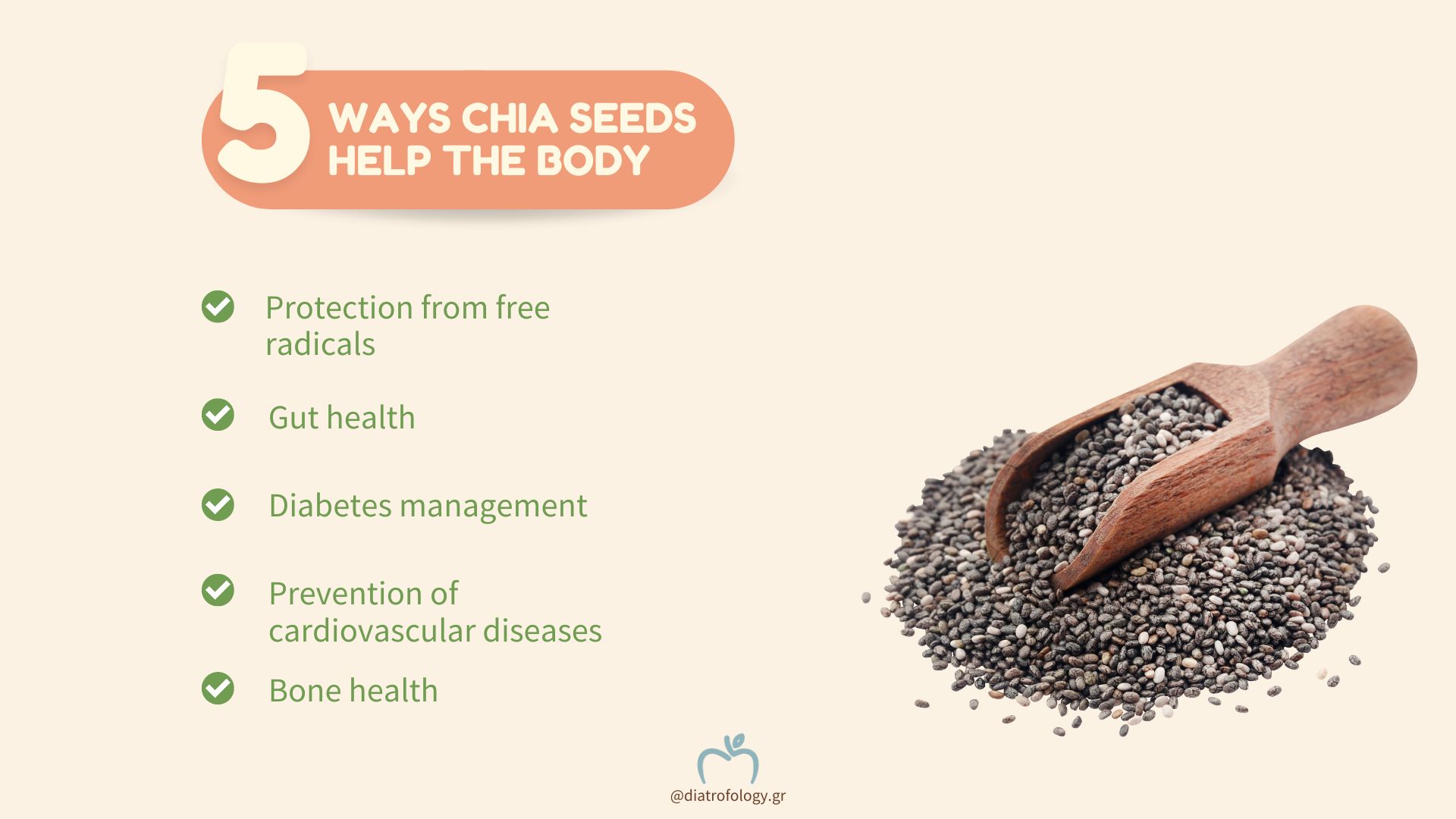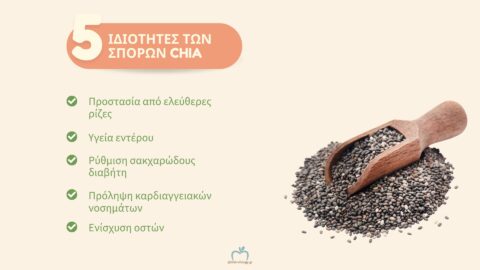Lately, chia seeds have been called a superfood, due to their nutritional value and high content in a number of nutritious ingredients, that seem to benefit our health, as written below:
- Protection from free rardicals
Due to the antioxidants in them (tocopherols, phytosterols, carotenoids, and polyphenolic compounds), they can fight the production of free radicals, protecting us from aging, inflammation, diabetes, health issues and cancer.
- Gut health
Incorporating chia seeds in our diet helps us up our daily fiber intake. About 2-3tbs of chia seeds (28-30gr) covers around 1/3 of our daily fiber need. Fiber helps us feel more full, helping with weight management, but also in bowel movements, fighting constipation, and at the same time preventing digestive system issues.
- Diabetes management
Due to the fiber, proteins and the magnesium they contain, chia seeds have the ability to stall the digestion of foods and lessen the glycemic load of meals, resulting to better blood sugar levels and reduced after-meal hyperglycemia.
- Prevention of cardiovascular diseases
The main component of chia seeds are the Omega 3 fatty acids, more specifically α-linoleic ac. Ω-3 fatty acids are known to protect the cardiovascular system, lowering the levels of triglycerides and LDL cholesterol. They also control inflammation and it seems that they affect blood pressure as well.
- Bone health
Chia seeds are rich in minerals that are essential for good bone health, such as calcium, phosphorus and magnesium. Furthermore, they provide our body with high biological value proteins, making them ideal food for people with bone problems such as osteoporosis, or for vegeterians who want to replace dairy products.
Ways to add chia to your diet:
- Sprinkle on top of porridge or yogurt
- In overnight oats or chia puddding
- In salads
- In cakes or energy bars


